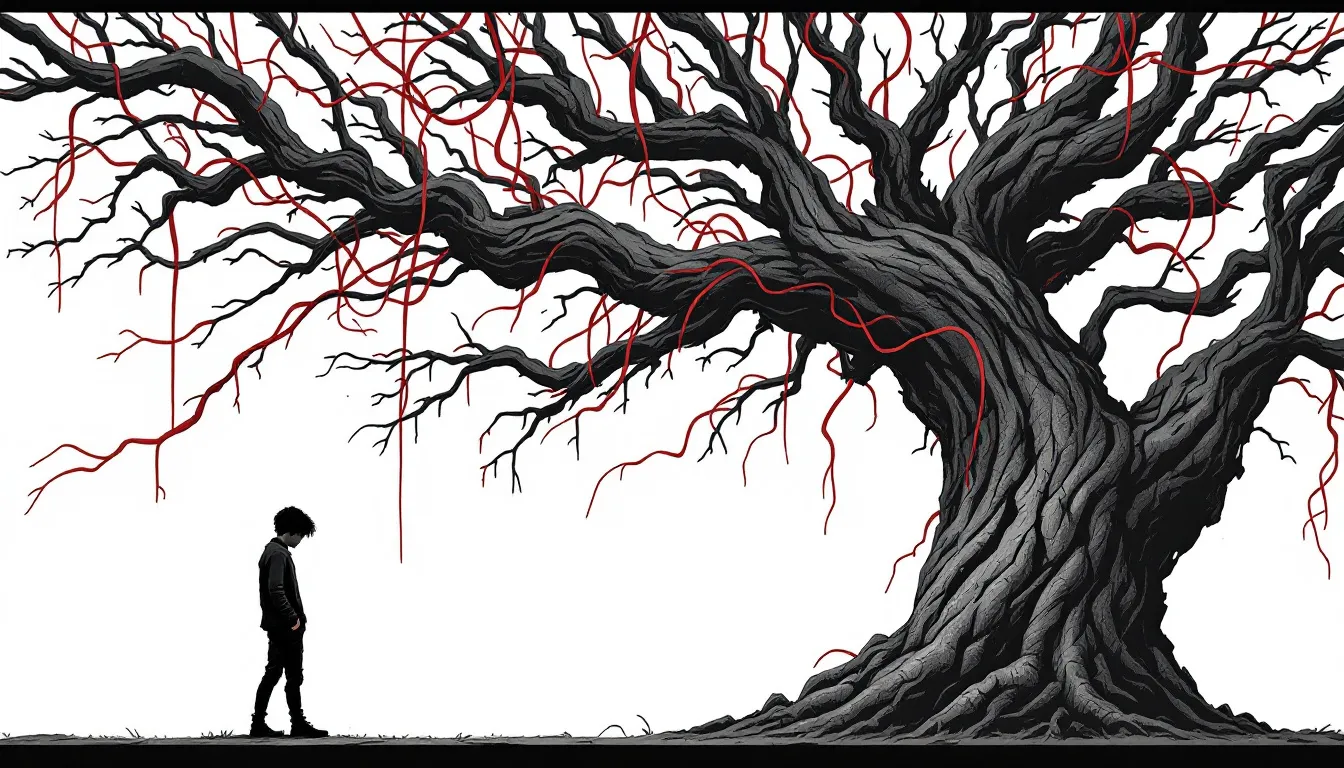Credit Card Debt and Inheritance: What You Need to Know
What happens to credit card debt when someone dies, and how does it affect inheritance? When a person passes away, their credit card debt does not disappear. Instead, the deceased’s estate is responsible for settling these debts before any assets can be distributed to beneficiaries. In this article, we’ll explore how credit card debt and inheritance are handled during the probate process, who might be responsible for unpaid debt, and what steps to take when a credit card holder dies.
Key Takeaways
- Credit card debts of a deceased individual must be settled through their estate before any inheritance is distributed, prioritizing creditor claims over beneficiaries.
- Surviving family members are generally not responsible for a deceased person’s credit card debts unless they were joint account holders or co-signers; the estate typically bears this responsibility.
- Immediate actions, such as notifying credit card companies and organizing financial documents, are essential for managing the deceased’s financial affairs effectively.
How Credit Card Debt Is Handled After Death

When a person dies, their outstanding debts do not simply vanish. Credit card debts must be paid off through the deceased person’s estate, which comprises all their assets at the time of death. The responsibility for managing these debts falls on the estate’s personal representative, who ensures that creditors are notified and that debts are settled during the probate process.
The probate process treats debts as claims against the estate, meaning that assets are used to pay off these obligations before any distributions to beneficiaries are made. Creditors are prioritized over beneficiaries, which can significantly impact the amount of inheritance left for heirs. This prioritization means that the estate’s assets are first liquidated to cover all the deceased person’s debts, including credit card debt, medical debt, and any other outstanding obligations. Only after these debts are cleared will the remaining assets be distributed to beneficiaries.
The personal representative plays a crucial role in this process, ensuring that all creditors are notified and that the debt repayment is managed effectively. This role is vital in preventing any potential legal issues or complications that could arise from unpaid debts lingering after the probate process is complete.
Responsibility for Credit Card Debt

One of the most pressing questions following a loved one’s death is who bears the responsibility for their credit card debt. Generally, family members are not liable for the deceased’s credit card debts unless they were joint account holders or co-signers. The deceased person’s estate is typically responsible for paying these debts, meaning that the estate’s assets are used to settle any outstanding balances.
In cases where the deceased had a joint credit card account, the surviving co-holder may be responsible for the remaining debt. Similarly, if there was a co-signer on the credit card, they could also be held liable for the debt. This responsibility can extend to surviving spouses in community property states, where debts acquired during the marriage are considered joint obligations. In these states, surviving spouses might have to use community assets to pay off the deceased partner’s debts.
Laws generally protect individuals from inheriting debt outright; creditors must present written claims to the estate within a specified period. If the estate lacks sufficient assets to pay all debts, creditors may choose to forgive the remaining amount. This means that not all debts will necessarily be collected. This legal framework helps ensure that beneficiaries are not unfairly burdened with the deceased person’s financial obligations and do not inherit debt.
Steps to Take When a Credit Card Holder Dies
When a credit card holder dies, immediate action is required to manage their financial affairs properly. The family member, beneficiary, or heir should first identify the executor or administrator of the estate, as this person will be responsible for managing the deceased’s debts.
The following subsections will detail the steps to notify credit card companies, organize financial documents, and obtain death certificates.
Notify Credit Card Companies
One of the first steps is to notify the credit card companies promptly. This is crucial to prevent further fees and interest from accruing on the deceased’s accounts. Failing to notify the credit card companies can also lead to potential identity theft and misuse of the deceased’s accounts. Each card issuer should be contacted, and account cancellations should be requested after the credit card holder dies.
Documentation, such as a death certificate, should be sent by certified mail to each credit card company, and the receipt should be saved for future reference. Additionally, contacting credit bureaus to flag the deceased’s credit report can help prevent new accounts from being opened fraudulently. A credit freeze might also be a good measure to ensure no new credit lines are taken out using the deceased’s information.
Organize Financial Documents
Organizing financial documents is another critical step. Obtaining multiple copies of the death certificate is essential for settling the deceased’s debts, claiming insurance benefits, and other estate purposes. These copies can be obtained from the funeral director or your state’s Department of Health.
Obtain Death Certificates
Acquiring multiple copies of the death certificate is vital for handling various administrative tasks related to the deceased’s estate. These documents are required for settling debts, claiming insurance benefits, and transferring assets.
Without these certificates, managing the deceased’s estate can become significantly more challenging.
What Happens to Credit Card Rewards

Credit card rewards present a unique challenge after the cardholder dies. Not all rewards can be inherited, and some may be lost entirely upon the cardholder’s death. Specific terms of the rewards program dictate whether points can be transferred or redeemed after the cardholder’s death. Some credit card companies allow rewards to be redeemed by the estate, provided the account is settled first.
For example, issuers like American Express offer time-limited redemption options for rewards after a cardholder passes away. The policies can vary widely among different credit card companies, so it is essential to review the terms and conditions of each rewards program.
Impact on Inheritance

Outstanding debts significantly impact the inheritance that beneficiaries receive. Creditors must submit their claims within six months of the estate opening to be considered for debt repayment. The order of debt repayment prioritizes funeral costs and taxes before settling credit card debts. This prioritization means that any outstanding debts reduce the amount that heirs can receive from the estate.
In cases where the estate is heavily in debt, beneficiaries might be left with little to nothing if all assets are liquidated to pay creditors. This situation can be particularly challenging for surviving family members who might have expected to inherit a significant portion of the deceased’s assets.
In community property states, surviving spouses in a community property state can be pursued for repayment of debts incurred during the marriage.
Legal Rights and Protections
Surviving family members have several legal protections under the Fair Debt Collection Practices Act (FDCPA). This act regulates the actions of debt collectors, ensuring fair treatment and protecting individuals from harassment or aggressive collection tactics. Surviving family members have similar rights as the deceased regarding debt collection practices, meaning they cannot be pressured for debts that do not belong to them.
Debt collectors are only allowed to communicate about a deceased person’s debts with certain individuals, such as spouses or executors of the estate. If a debt collector contacts a surviving family member, they can request that the collector cease communications by sending a written notice.
These protections help ensure that family members are not unduly burdened during an already difficult time.
Protecting Assets from Creditors

There are several strategies to protect assets from creditors. One effective method is creating a living trust, which can shield assets from being claimed by creditors. Trusts can provide income for family members while simultaneously protecting those assets from creditors and allowing individuals to manage their own money.
Designating beneficiaries on certain accounts, such as retirement accounts, can also protect those assets from creditors after death. By planning ahead and implementing these strategies, individuals can ensure that their assets are safeguarded and that their beneficiaries receive the intended inheritance.
This proactive approach can help mitigate the financial impact of outstanding debts and pay debts on the estate’s assets.
Community Property States and Credit Card Debt
In community property states, debts incurred during the marriage are considered the couple’s responsibility, meaning both spouses are jointly liable for joint debt.
These states include:
- Arizona
- California
- Idaho
- Louisiana
- Nevada
- New Mexico
- Texas
- Washington
- Wisconsin
As a result, a surviving spouse may need to use community assets to pay off the deceased partner’s debts.
Creditors can pursue surviving spouses for secured debt settlement in these states, making it crucial for individuals to understand their liabilities and plan accordingly. This knowledge can help surviving spouses navigate the complexities of secured debts repayment and protect their financial health.
Seeking Professional Help
Seeking professional help is essential in managing inherited debt effectively. Consulting with legal professionals or experienced estate attorneys can provide crucial guidance on handling debt after a loved one’s death.
For individuals unable to afford legal counsel, various community legal aid services and nonprofit credit counseling agencies offer assistance.
Summary
In summary, understanding how to manage credit card debt after a loved one’s death is critical for protecting financial health and ensuring proper estate management. From notifying credit card companies to organizing financial documents and seeking legal advice, each step plays a vital role in navigating this challenging process.
By taking informed actions and utilizing available legal protections, surviving family members can effectively manage the deceased’s debts and safeguard their inheritance. Remember, proactive planning and professional guidance are key to handling these complex financial responsibilities.
Frequently Asked Questions
Who is responsible for paying off credit card debt after someone dies?** **?
The deceased person’s estate is responsible for settling their outstanding credit card debt. Family members are only liable if they were joint account holders or co-signers.
What happens if the estate does not have enough assets to cover all debts?** **?
If the estate does not have enough assets to cover all debts, creditors may write off the remaining amounts, and beneficiaries typically are not held responsible for those unpaid debts.
How can I protect my assets from creditors?** **?
To effectively protect your assets from creditors, consider establishing a living trust and designating beneficiaries on specific accounts. Consulting with a legal professional is also essential to navigate the complexities of asset protection.
What should I do immediately after a credit card holder dies?** **?
It is essential to notify the credit card companies immediately and gather financial documents, along with multiple copies of the death certificate, to manage the deceased’s estate efficiently. Prompt action will facilitate the necessary processes regarding the credit card account.
Are surviving spouses in community property states responsible for the deceased spouse’s debts?** **?
Yes, in community property states, surviving spouses can be held responsible for debts incurred during the marriage, potentially requiring the use of community assets to settle those debts.








